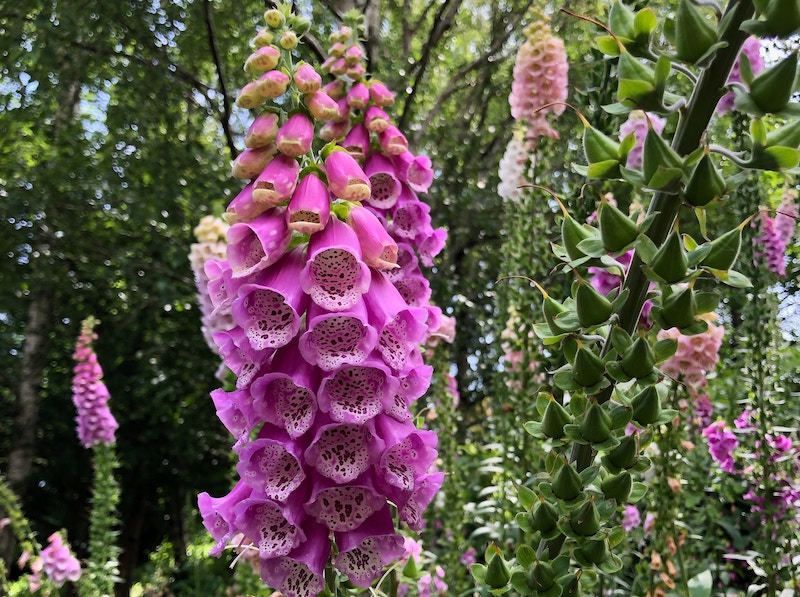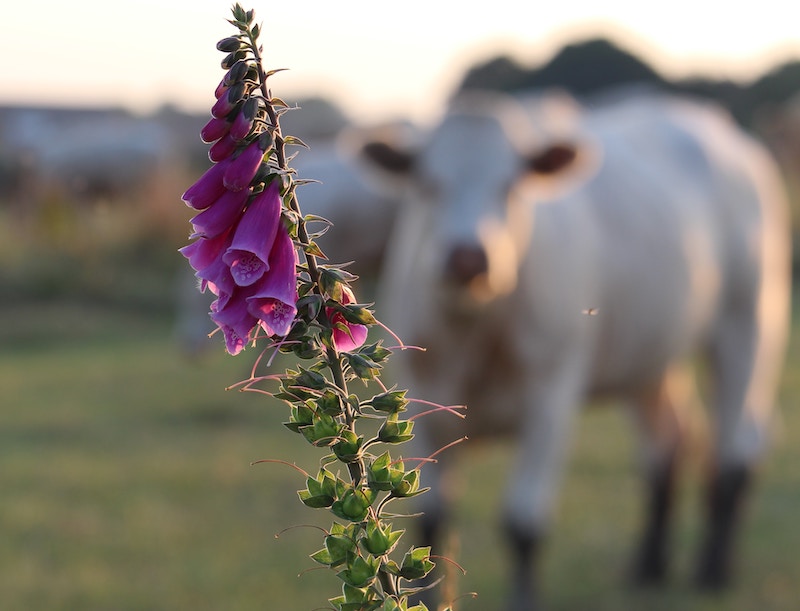The ornamental biennial plant Foxglove is toxic to humans and animals alike. Although a common heart medication is made from Digitalis lanata, Yellow Foxglove, its active ingredient is found in all types of Foxglove and is dangerous when ingested at unregulated levels. The cardiac glycosides are present in the foliage, flowers, and seeds of Foxglove plants.

Are Foxgloves Poisonous to Children?
Young children who brush up against Foxglove in the home garden are not likely to develop a skin reaction. Ingesting any parts of the plant, either living plant material or spent flowers that have fallen to the ground, may cause severe reactions. Because children have much less body mass than an adult, smaller amounts of the toxin in Foxglove can cause adverse reactions. Keep children out of areas where Foxglove grows and do not use the flowers for indoor arrangements.
Are Foxgloves Poisonous to Dogs?
Dogs and puppies of any size can be affected by the toxins in Foxglove and should be kept away from the plants as a precaution. If you have pets that are plant chewers, either keep them away from the garden where Foxgloves are planted or choose not to grow them altogether. The signs of Foxglove poisoning include nausea, vomiting, bloody diarrhea, tremors, and convulsions.
AreFoxgloves Poisonous to Cats?
Cats are affected the same as other pets who ingest Foxglove. Although all parts of the plant are not palatable to cats, cases of toxicity in animals drinking water from vases that held an arrangement of Foxglove indoors have been reported. The toxin may cause nausea, vomiting, diarrhea, irregular pulse, and convulsions.

Are Foxgloves Poisonous to Other Animals?
Other pets and livestock are also susceptible to Foxglove poisoning if they are grazers or likely to eat plants outdoors, such as pet rabbits or guinea pigs. Often animals innately know to stay away from poisonous plants that grow in grazing pastures, although they can be accidentally eaten fresh or dry as part of prepared hay bales. Do not feed chickens or other livestock fowl any parts of Foxglove for forage material. The symptoms of poisoning may be subtle in larger animals and may include diarrhea and labored breathing.
Symptoms Of Foxglove Poisoning
Always check with your doctor or veterinarian for guidance if you suspect (plant xyz) poisoning. There are antidotes and treatments to prevent the most dire outcomes in both humans and animals.
Here are some common symptoms to look out for:
- Diarrhea
- Vomiting
- Loss of appetite
- Low energy
- Confusion
- Blurred vision
- Change in light or color perception
- Rapid or slowed heartbeat
- Tremors
- Convulsions
Preventing Foxglove Poisoning
There are other non-toxic plants that can be grown in place of Foxglove. Delphinium, Larkspur and Snapdragons all have the same vertical impact as a Foxglove with no risk of them causing reactions in pets or children. Do not bring arrangements with Foxglove into the house where pets could come into contact with them. Although skin irritation is rare with Foxglove, always wear gloves when planting or pruning the plants. Do not rub your eyes or mouth before washing your hands.
Pet Poison Helpline
If something were to happen to your furry friend, and you suspect that they are suffering from Foxglove poisoning, there is a poison control hotline to call for 24/7 vet advice. It is called the Pet Poison Hotline, and their phone number is (855) 764-7661.
Sources:
"Foxglove poisoning." Mount Sinai. mountsinai.org
"Foxglove - Toxic to the Heart." Poison Control - National Capital Poison Center. poison.org
 |
Author Robbin Small - Published 6-28-2023 |
